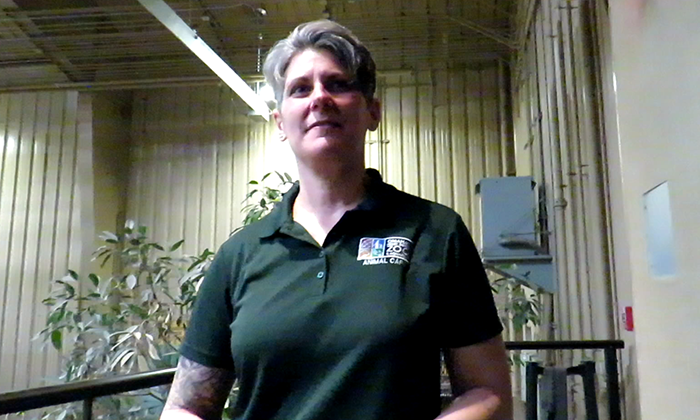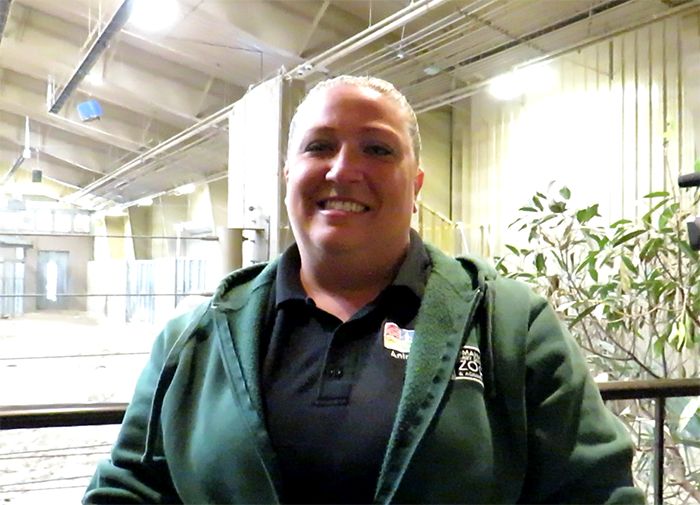OmahaNebraska.com Interview with Sarah Armstrong, Elephant Manager
Omaha’s Henry Doorly Zoo and Aquarium

OmahaNebraska.com:
One of the questions I’d like to ask is how did you get here? What prepared you for it? This could be strange things you were only realized like at this point in your life that that was kind of preparation.
Sarah Armstrong:
Yeah, I probably have the strangest path to elephants out there. I started my career here back in 2002 in the Desert Dome as a reptile and amphibian keeper. And then as things progressed along, I moved to help develop our amphibian conservation area with our reptile curator here at the Zoo, Jesse Krebs. Then I had the goal of wanting to become a supervisor by the time I was 30, and we were looking for a supervisor for Madagascar. I happened to get that position, which was fantastic.
After a year and a half in that position, my husband landed his dream job, which sent us to St. Louis. I resigned and moved to St. Louis with him which was great, in a sense, because I became a hellbender keeper there, which is back to amphibians. The hellbender is the largest aquatic salamander in North America. They can get up to two feet long and cold water mountain streams is where they are found. I was working with a head start program, a captive reproduction program for those, because they are in danger. And so we were breeding and head starting and releasing, which was incredible.
Then my husband got transferred back to Omaha which also wasn’t a bad thing. When I came back, this was all under construction and they were still looking for an elephant manager for the department. Upon my return, I reached out to curators and staff here because I had left on good terms, having said, “Hey, I’m going to be back and I really want to come back to the company.” This opportunity was presented to me if I would be interested in it. And so, you know, I’ve had a career interest in training. This has taught me volumes, having to work with such an intelligent animal, but I think overall my career with venomous reptiles, which are dangerous animals, and then just attention to detail with some of the specific stuff to amphibians, my exposure to mammals through Madagascar… it was a unique mix of things and being part of so many exhibits being developed here at the Zoo. It put me in, I think, a relatively unique place to succeed in this position. And I did not do it alone by any means. We had a consultant. My boss, our large mammal curator, Dan Houser, he had 30 years elephant experience. He mentored me, our consultant, a team that I have working with me, all of those things come together because this is not a one person thing, at all, to make this to make this happen and have this be successful. I’ve been very fortunate to have worked with a lot of really incredible people to help develop myself to be successful in this kind of role.
OmahaNebraska.com:
I’m sure part of you didn’t want to move. But then it led you on a really cool path that you didn’t expect.
Sarah Armstrong:
Absolutely. Everything happens for a reason. There’s a journey and a purpose and I love it.
OmahaNebraska.com:
Thank you.






